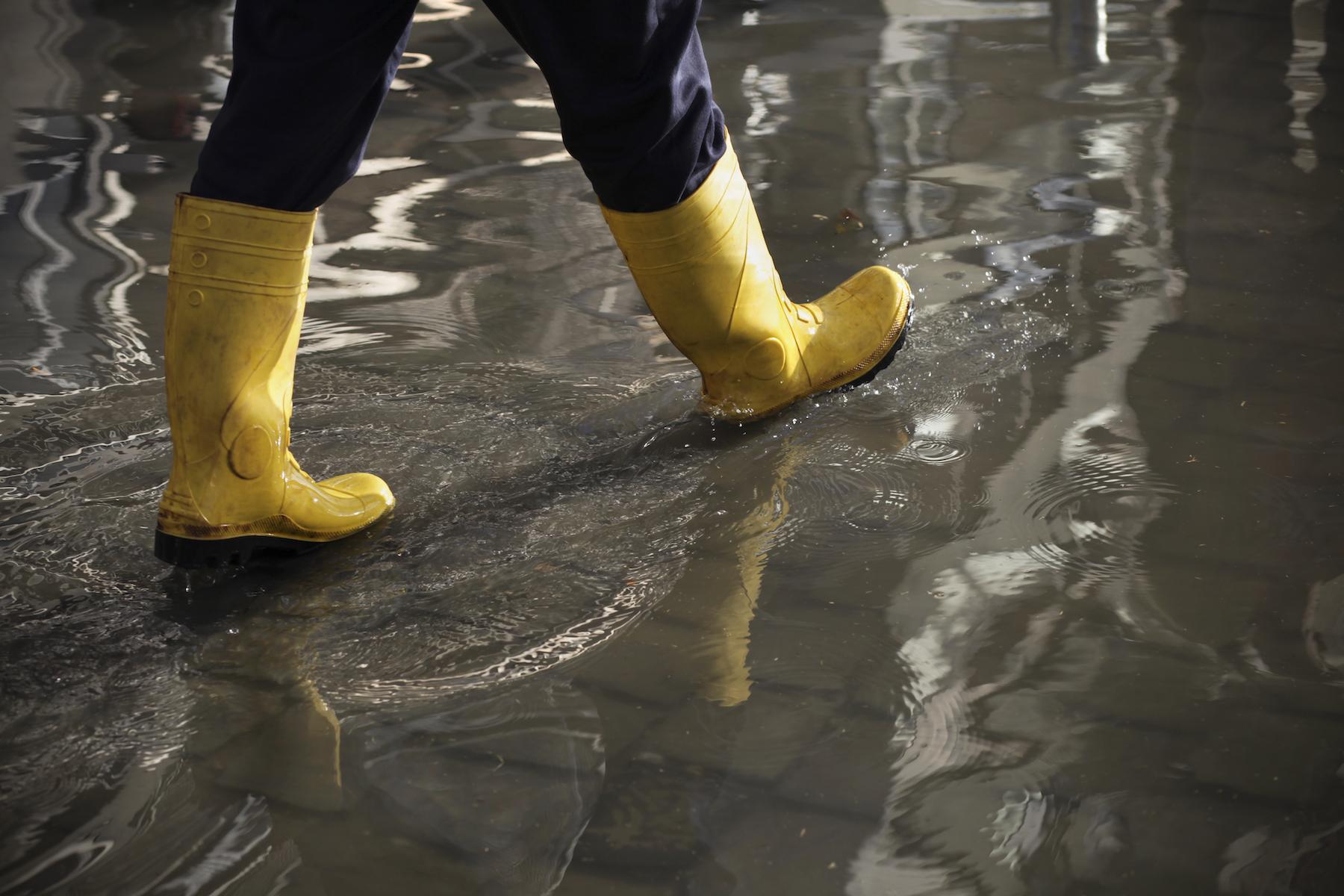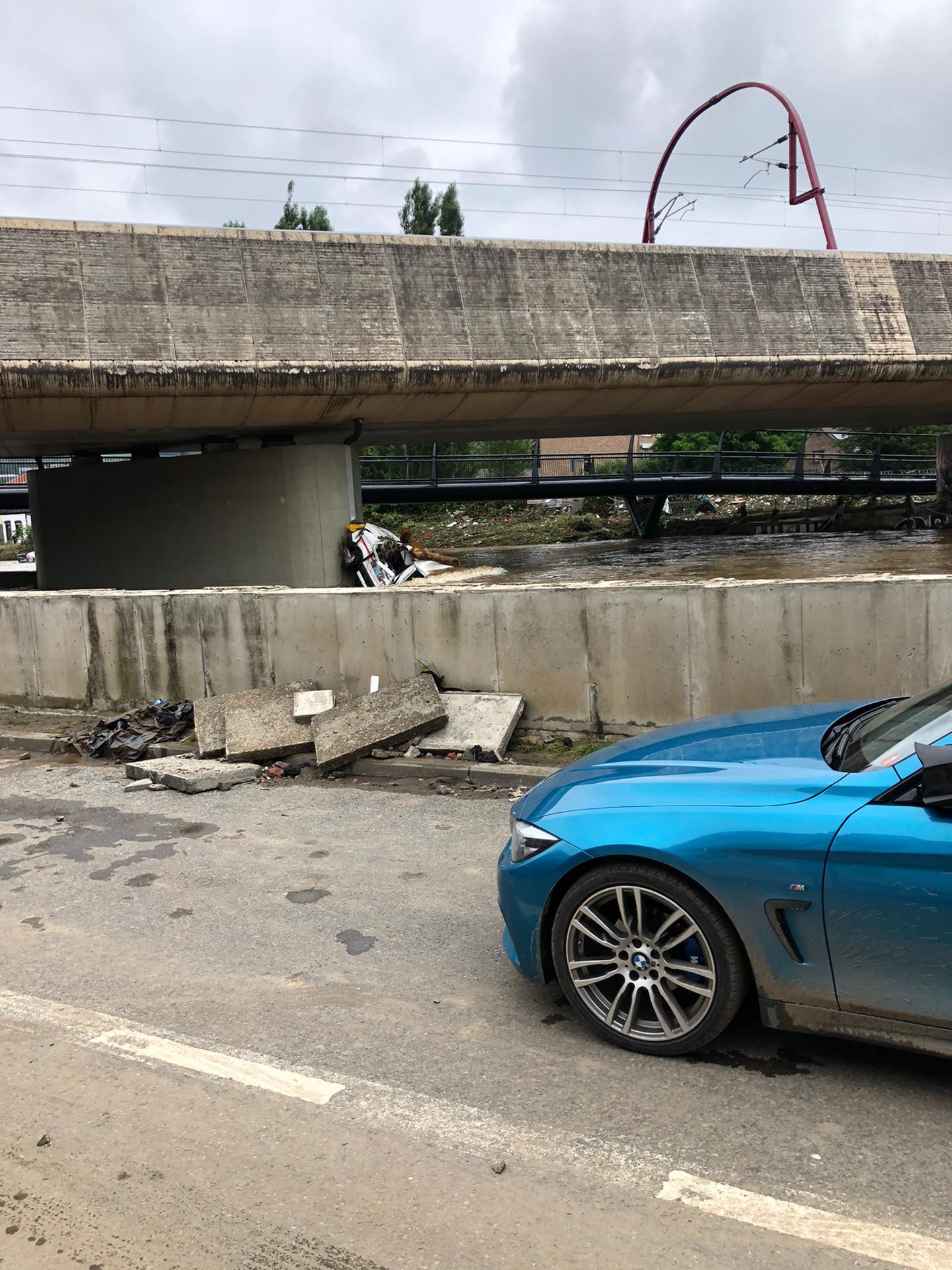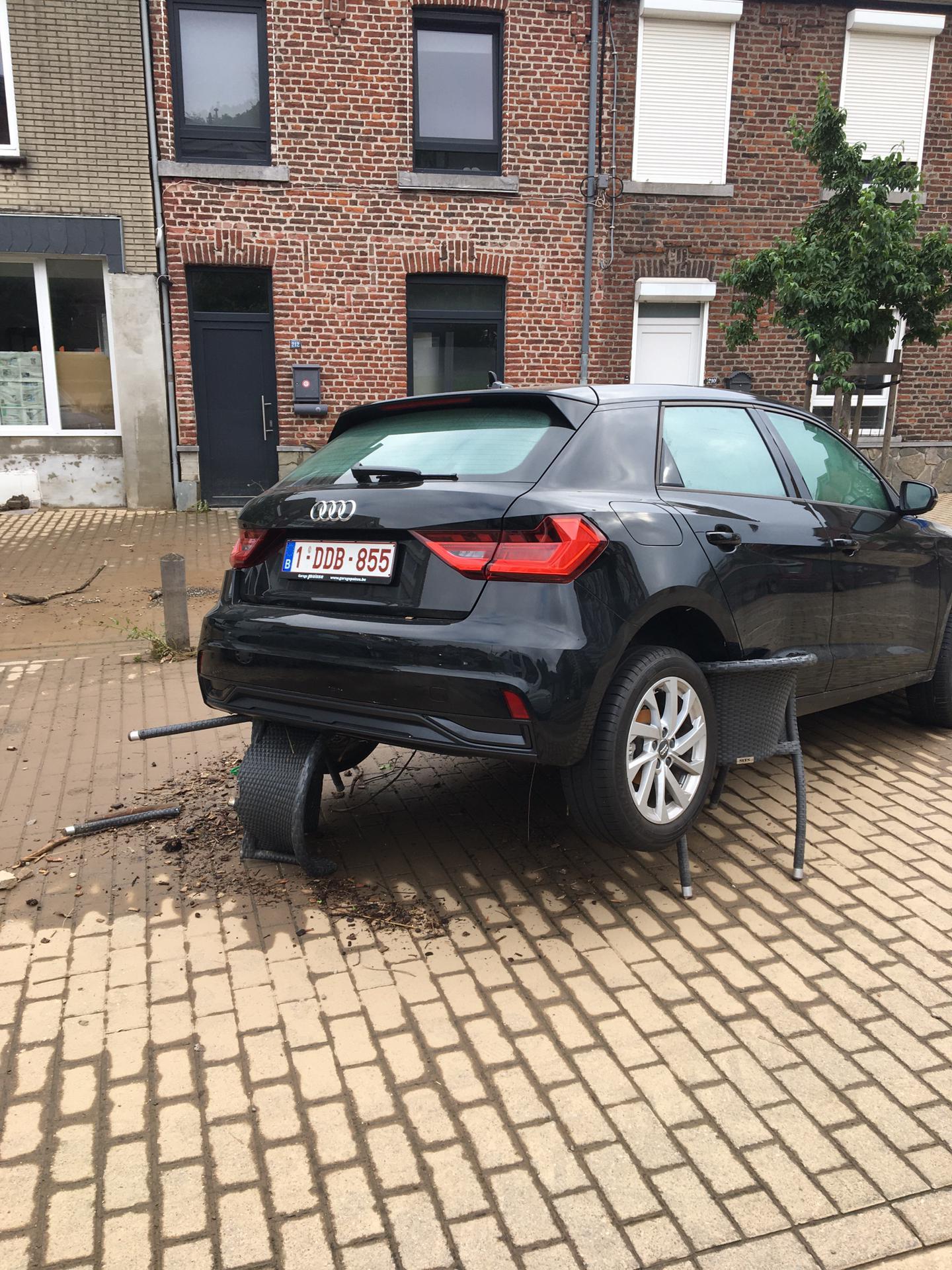How a professional assistance network handled the aftermath of the 2021 floods
AXA Partners' insurance and proactive assistance made a critical difference for the victims of the natural disaster in the south of Belgium in the summer of 2021.

In July 2021, Belgium was hit by the worst flooding in more than 70 years. The human and material damage was enormous: cars washed away, houses collapsed, people were surprised by the suddenly rising water level. The churning water carried everything away.
In such a large-scale disaster, solidarity and fast, targeted aid are vital. AXA Partners immediately mobilised its assistance network for the insured customers of its business partners.
After all, AXA Partners provides the assistance that our business partners offer their end customers as an inherent assistance package together with their insurance policies, services or (banking) products. The call centres, professionals, aid workers or service teams from our assistance network spring into action when the end customers need and request it, and when they are entitled to it within the bounds of the service agreements.
Shelter for victims: Proactive collaboration makes the difference
1. Natural disaster: Act quickly, work together efficiently
During the recent pandemic, our 24/7 assistance was no easy task! How could the employees of our assistance networks provide quality assistance if they had to work full-time from home? In retrospect, those 'lockdown lessons' proved invaluable for our cooperation and assistance in tackling large-scale disasters. This became clear during the Belgian flooding disaster in July 2021.
Since we provide permanent assistance on behalf of our business customers, we were able to assess the scale and impact of the flooding and the needs very quickly. We consulted with our business partners to take the appropriate measures in this emergency situation, regardless of what was contractually agreed.
With the floods in the south of Belgium, it became clear to us that we not only have to act quickly in the event of natural disasters, but also deploy specific crisis teams. For example, we immediately reinforced our local teams to provide the necessary assistance on the spot. In order for any assistance to run smoothly in these difficult circumstances, first responders or agents who deal with victims' (insurance) questions should have a few essential skills:
- Speak to the insured fluently in their own language
- Listen actively and with empathy to quickly identify their needs
- Know the policies and their general terms and conditions down to the smallest detail (however diverse they may be). To properly assist victims or affected parties in all situations, our agents need a thorough knowledge of all services
- Know where on the map the victim is located. In other words, good geographical knowledge
- Have the reflex to immediately mobilise the network and direct the local emergency workers who can help the end customer on site
- Meticulously manage their own agenda in order to follow up files quickly and accurately
- Consult effectively and regularly with teammates or care providers from the network to provide efficient assistance and to tackle complex situations


2. Act proactively, communicate efficiently
During the floods, it soon became painfully clear that the market could not always keep up with the demand for assistance. At that time, our experienced assistance network proved to be a great added value.
Towing services: absolute lifesavers. Demand for vehicle damage assistance was so great that we introduced an accelerated procedure to dispatch recovery services to customers in need. And even though our local tow trucks were also hit by the flooding, they got out there anyway. Such breakdown requests sometimes turned into real rescue missions and they 'towed' people from the water.
Good agreements, clear overview. We kept the lines of communication with our towing services and garages very close, and made clear agreements. For example, they first towed damaged cars to their own sites and only later to the garage. In this way we could easily make an inventory of the cars on their sites and the cars that they had towed at the request of the government. And we knew exactly which cars were located where.
Staying ahead of supply shortages. During the floods, it turned out to be especially difficult to find replacement vehicles. After all, during the pandemic, considerably more Belgians had booked a holiday with a rental car, while many rental offices in Belgium and Europe had downsized their fleet. Fortunately, through our well-developed assistance network, we always have our finger on the pulse. Due to the number of urgent calls for transport breakdowns, we were able to quickly estimate the scale of the problem. We immediately reserved a large number of replacement vehicles from several suppliers. This proactive attitude ensured that we could continue to provide assistance.
3. Our action plan on housing
Housing proved to be an acute and serious problem in the aftermath of the 2021 flooding. We quickly set up a step-by-step plan for this:
1. Inventory of needs. We collected all requests for (re)housing through our partners, brokers and direct contacts with the victims. This gave us a clear picture of the exact number of replacement homes.
2. Check coverage. We immediately examined whether each applicant was properly covered at the time of the floods and exactly what coverage the victims had. These coverages differ depending if you are a tenant or owner of a house.
3. Find lodging. We went in search of suitable emergency shelter depending on the composition of the households, in or around the region of the disaster.
4. Proactively book accommodation. From the start of the disaster, we made the most accurate estimate possible of the need for rehousing and its duration. We immediately booked accommodations in and around affected regions, even before the requests came in. In this way, we were able to place a lot of families temporarily in a hotel at once. But also in the days that followed, we were able to serenely handle all new requests and offer victims shelter.
5. Offer permanent solutions. We already had experience with temporarily housing people, for example in the event of a house fire. However, our primary aim was to accommodate people in their own region. Hotel rooms were an excellent solution in the short term. But how to solve the housing shortage in the medium and long term, both for people staying at hotels and people staying temporarily with friends or family? We found suitable long-term housing for people whose homes had been declared uninhabitable or whose repairs would take a long time.
4. Extra measures in case of exceptional needs
How could we give extra help to the victims of this natural disaster? How could we give them the necessary assistance, even if it wasn't included in their contracts? Together with our business partners, we decided that the exceptional disaster deserved special measures.
- Victims of the disaster could contact a doctor or psychologist for a teleconsultation free of charge.
- Because many cars were untraceable or completely irreparable:
- we extended the term for the use of a replacement car;
- we automatically offered a replacement car – even if this was not in their contract – for private individuals and professionals;
- we advanced the security deposit for the replacement vehicle when victims had lost their credit cards.
- In some cases, we extended the duration of the assistance as stipulated in the policy.
- In certain cases, we extended the duration of the temporary hotel accommodation.
- For the victims who had lost everything, we provided basic necessities or money and raised the maximum amount.
What did we learn from this disaster?
A crisis situation, such as the floods of the summer of 2021, is always instructive for aid workers and insurers. We learned the following lessons from this extreme disaster:
- Our business partners are driven to go the extra mile to provide assistance in an emergency. They look for creative solutions and dare to look beyond the general terms and conditions in policies or contracts.
- Fast, open and clear communication between our employees and our business partners is crucial. And that often comes down to small things. Are we talking about calendar days or business days, for example?
- Our local assistance networks passed the test with flying colours: They acted quickly and decisively and ensured efficient interventions.
- Victims should not hesitate to ask for assistance at night or on weekends. Often people would wait until morning or even normal 'business hours' to ask their emergency question.


